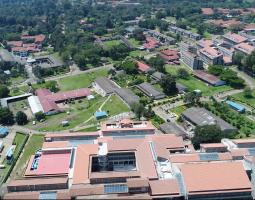
Legal Dispute Over Academic Discontinuation Ends in Court Ruling
A legal battle over the discontinuation of a former student from Egerton University has concluded with a court ruling that dismissed the case. The High Court in Nakuru ruled that the petition filed by Joel Tuitoek Cherogony did not meet the threshold of a constitutional case, effectively striking it out.
Cherogony, who was admitted to Egerton University in 2012 to pursue a Bachelor of Science in Clinical Medicine and Surgery, filed the petition in August 2023. He alleged that his constitutional rights were violated by the university, citing several articles of the Kenyan Constitution, including Articles 27, 28, 29, 35, 47, and 55. His claims centered around poor training, late lectures, lack of mentorship, unfair evaluation, and eventual discontinuation after allegedly failing a unit due to the university’s negligence.
The student also claimed that the university changed the course title and mode of study midway through his program, which he argued negatively impacted his academic progress. Additionally, he stated that despite passing certain units, such as Critical Thinking, the university unfairly failed him. He further accused the institution of denying him clinical mentorship opportunities and subjecting him to an end-of-course examination without proper training.
Court's Decision on Constitutional Violations
In a judgment delivered virtually on June 30, 2025, Justice Julius Nang’ea ruled that the petition did not constitute a strictly constitutional case. Instead, he stated that the petitioner’s complaints fell under the realm of judicial review of decisions made by administrative bodies. The judge emphasized that Cherogony had failed to provide specific evidence proving that his constitutional rights had been denied.
“No specific evidence has been offered proving that these rights have been denied to the Petitioner,” the court ruled. This lack of evidence was a critical factor in the dismissal of the case.
Egerton University, through an affidavit sworn by its Registrar of Academic Affairs, Professor Mwanarusi Said, defended its decision to discontinue Cherogony. The university stated that he was lawfully discontinued after failing a repeat exam in his third year, in accordance with the rules governing medical programs. It accused Cherogony of misusing the court process and maintained that his constitutional rights had not been breached.
University's Defense and Legal Arguments
The university also pointed out that Cherogony’s appeal was dismissed by the institution’s internal appeals committee. It argued that his academic failures did not warrant judicial interference. The university’s counsel submitted that the court could not be invited to interfere with the internal workings of a statutory body unless there was proof that the decision complained of was illegal, irrational, or unreasonable.
Justice Nang’ea upheld the university’s argument, citing the principle of constitutional avoidance. He emphasized that the matter was more appropriate for judicial review under the Fair Administrative Action Act. “The doctrine of Constitutional avoidance in my view accordingly applies,” the judge ruled.
Outcome of the Case
As a result of the court’s decision, the petition was struck out, and each party was ordered to bear its own costs. “Considering the relationship that existed between the parties, they shall bear their own costs,” the judge said.
This case highlights the complexities involved in challenging institutional decisions through the legal system. While students may feel their rights have been violated, courts often require clear evidence and a direct link to constitutional provisions before taking action. In this instance, the court found that the issues raised by Cherogony were better suited for a different legal framework, emphasizing the importance of understanding the appropriate avenues for redress.
Post a Comment